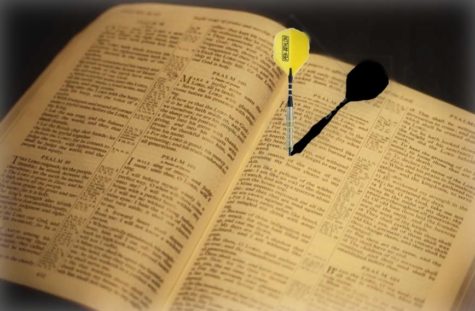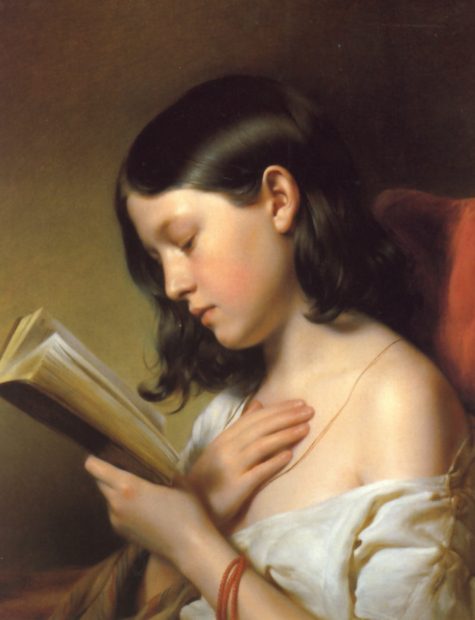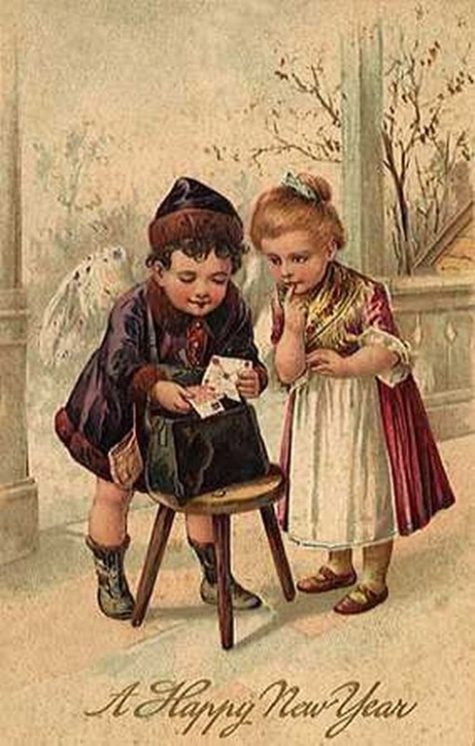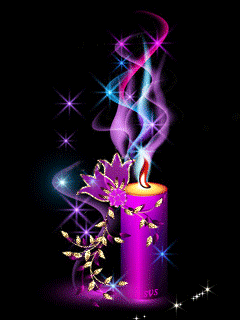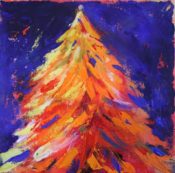Stichomancy
Bibliomancy – What is it?
Bibliomancy is a form of Stichomancy or Libromancy (“divination from lines”), which involves selecting a random passage from a random book of any nature. Bibliomancy and Stichomancy have been popular methods of divination for at least 3000 years, when the I Ching was first used to divine the future.
The method of employing sacred books (especially specific words and verses) for ‘magical medicine’, for removing negative entities, or for divination is widespread in many religions of the world.
According to the Oxford English Dictionary, the word bibliomancy “divination by books, or by verses of the Bible” was first recorded in 1753 (Chambers’ Cyclopædia). Sometimes this term is used synonymously with stichomancy “divination by lines of verse in books taken at hazard”, which was first recorded ca. 1693 (Urquhart’s Rabelais).
According to one source, the original use of Bibliomancy was a method to discover whether or not a person was innocent of sorcery. It consisted of weighing the suspect against the great Bible in the local church. If the subject weighed less than the Bible, he or she was considered innocent. Later, Bibliomancy became attached to any divinatory use of the Bible.
In medieval times it was believed that Bibles laid on a child’s head would induce sleep, and that reading from the Bible to a pregnant woman would give her a safe delivery.
Some Christian and Jewish groups believe that the Bible forbids divination in general, however, according to the Shulchan Aruch, it is not the sin to divine an answer using the “goral“, the practice of opening the Chumash to see an answer to a question, or asking a child for the first piece of scripture that comes to his mind.
Here’s how it works:
- A book is picked that is believed to hold truth.
- It is balanced on its spine and allowed to fall open.
- A passage is picked, with the eyes closed.
The name Rhapsodomancy has also been used for this practice, which involved opening the book at random and then interpreting the omens in a prophetic fashion, usually using the first words or sentences read. A historical precedent was the ancient Roman practice of sortes “divination by drawing lots” which specialized into sortes using the texts of Homer, Virgil, and the Bible.
St. Francis of Assisi, to seek divine guidance, is said to have thrice opened to a random page of the book of Gospels in the church of St. Nicholas. Each time he opened to a passage in which Christ told His disciples to leave their earthly belongings and follow Him.
In Iran, Bibliomancy using the dīvān of Hafiz is the most popular for this kind of divination, but by no means the only kind. The Qur’an, as well as the Masnawī of Rumi may also be used. Fāl-e Ḥafez may be used for one or more persons. In group bibliomancy, the dīvān will be opened at random, and beginning with the ode of the page that one chances upon, each ode will be read in the name of one of the individuals in the group.
The ode is the individual’s fāl. Assigning of the odes to individuals depends on the order in which the individuals are seated and is never random. One or three verses from the ode following each person’s fāl is called the šāhed, which is read after the recitation of the fāl. According to another tradition the šāhed is the first or the seventh verse from the ode following the fāl. An ode which had already been used for one individual in the group is disqualified from serving as the fāl for a second time.
Because book owners frequently have favorite passages that the books open themselves to, some practitioners use dice or another randomiser to choose the page to be opened. This practice was formalized by the use of coins or yarrow stalks in consulting the I Ching. Tarot divination can also be considered a form of bibliomancy, with the main difference that the cards (pages) are unbound. Tarot can also be considered a form of bibliomancy, with the main difference that the cards (pages) are unbound.
There is a prevalent practice among certain, particularly messianic, members of Chabad-Lubavitch Chasidic movement to use the Igrot Kodesh, a thirty-volume collection of letters written by their leader Menachem Mendel Schneerson for guidance.
Another variant requires the selection of a random book from a library before selecting the random passage from that book. This also holds if a book has fallen down from a shelf on its own.
English poet Robert Browning used this method to ask about the fate of his enchantment to Elizabeth Barrett (later known as Elizabeth Barrett Browning). He was at first disappointed to choose the book Cerutti’s Italian Grammar, but on randomly opening it his eyes fell on the following sentence: ‘if we love in the other world as we do in this, I shall love thee to eternity’ (which was a translation exercise).
Sources: Wikipedia and other sources
Consulting The Library Angel
I’ve consulted the “library angel” at home, in libraries all over the world, in bookstores, and with friends’ books for many years. I suggest you begin at home next to your own bookshelf, where you’ll have the most privacy.
Begin by relaxing and then quieting your mind. Focus on your intent and address the magical portals into divine wisdom that are before you by acknowledging their power and their role, for example:
“I invite the numinous spirit that resides within these volumes to guide my hand, and my inquiry. Please help me find wisdom.”
Close your eyes. Allow your hand to move freely back and forth, up and down in front of the books. Allow your hand to move freely, while keeping your eyes closed. When the moment is right, you will feel a gentle pull toward the bookcase. You may feel a sudden sense of certainty as your hand is guided to the volume you are meant to work with. Pull it from the shelf. Hold it to your heart and say:
“I acknowledge you as my guide.”
Now recite your question aloud.
Allow the book to open in your hands. Open your eyes and let them light upon the page. Read what is before you.
It may take time to meditate upon the answer you have received, or the message may be absolutely clear immediately. You may ask for clarification if you need to, but don’t ask the same question twice.
Write down the passage your received and even if it does not seem immediately meaningful, let it evoke feelings. And end the divination by giving thanks to the book, the library angel, and the Divine for their assistance.
From: Witch Crafting
New Years Divinations
Some Albanian tribes celebrate their New Year on the first of September, and everything that happens during the day, presages the happenings of the months of the year, as to whether they will be lucky or not.
On New Year’s day dip your thumb seven times in salt and put in your mouth all that rests on the nail. You will dream that your future husband or wife will bring you water. (Persia.)
On New Year’s night, it was an old Welsh custom with the wise and courageous old men of the parish to sit up all night in the church porch. On that night, it was said, a voice, emanating from beneath the altar table, pronounced the names of those who should die within the coming year.
If a woman dies first in the year, then the greatest mortality during the year will be amongst women; and vice versa if a man dies first. (Gloucestershire, England.)
On New Year’s eve, the Gurians in Russia place small pitchers of wine in each of the bed-rooms of the family; if in the morning the wine has increased, the harvest will be abundant; but if the wine is lessened, they will have bad luck that year.
During the time that the male Jews are at the synagogue on the night of the tenth of the month Tisri (Yorn Kippur, the day of atonement), the women light the candles and lamps at home, and according as the light burns prognosticate good or evil fortune.
If your first caller on New Year’s day is a male, you will have good luck and many friends; if a female, bad luck and few friends.
Turn your pillow at midnight of the thirty-first of December, and you will dream of the one you are to marry.
If the sun shines on New Year’s day, it is a sign that the flax will be straight.
He who steals on New Year’s, can steal safely for a year.
Every Chinaman must perform the extraordinary act of taking a bath on New Year’s day. To fail in this would be a bad sign.
The Chinese put potatoes in water on New Year’s eve and prognosticate their fortunes by the way they grow. If they are not thrifty they will meet with trouble during the year.
At midnight on New Year’s the Japanese build small fires on the floor of their houses and from the manner in which the flames arise, foretell what will be their luck during the coming year.
At Liege, Belgium, it is a bad sign if a little girl presents you the first wishes for a happy New Year, but lucky if it is a boy.
It is an old Dutch superstition that, if you want to marry the girl you love, your voice must be the first one she hears, and your face the first she sees, on New Year’s morning.
Venetians consider it very important to notice whom you meet the first thing on New Year’s day. If it is a man, you will have good luck, if a woman, bad luck; if a priest, you will die within the year; if a policeman, you will have litigation.
The first person of the opposite sex you meet on New Year’s day will bear the Christian name of your future partner.
If ice melts on the 1st of January, it will freeze the 1st of April.
In one part of modern Greece all in the house go out early on New Year’s morning each bearing a branch on which the leaves are well dried. These they cast on the open fire, each wishing at the same time good luck to the family. The greater the fire, the better the augury.
On New Year’s eve take your hymn-book to your bedroom, blow out the lamp, open your book and mark a hymn (in the dark), put it under your pillow, and sleep on it. Next morning read the hymn, and its text will indicate the events of the year.
Your conduct on New Year’s day is a forerunner of your conduct all the year.
It is said that whatever the experience of a person is on New Year’s day, so it will be all the year, either tears or smiles.
In Scotland, the first person who comes to the house on New Year’s day will govern the luck of the house for the year, and in this belief, the “first foot,” is carefully watched.
In Transylvania on New Year’s eve the young men of the family bind together as many wreathes as there are persons in the house and throw them over the roof. Those that fall indicate the ones who will die that year.
Lay a green ivy leaf in a dish on New Year’s night, cover it with water and set it in a safe place until the fifth day of the year. If the leaf is then still green and fair, you will be safe from any sickness all the year; but if you find black spots on it, you may expect sickness.
In Pomerania and also in this country, young ladies believe that if they rapped at a poultry-house door at midnight on New Year’s eve, and the cock cackled first, they would surely be married that year; but if the hen cackled first, they would remain maids.
“On New-Year’s Day
Take out and then take in,
Bad luck will begin:
Take in, then take out,
Good luck will come about.”
On New Year’s eve, if a person wishes to know his fate during the coming year, he must go into the open air with a psalm book in one hand, and a piece of silver in his mouth. He must allow the book to fall open, and if it opens at the death psalm he will die; if it opens at a bridal psalm, he will marry; and whatever else it opens to, will indicate his fate. (Sweden.)
A “plane-soled” or “flat-footed” person is considered in Scotland a sanctimonious person and unlucky to meet on New Year’s day; while a hearty, merry fellow is good luck. It is necessary for all to drink every drop in the glass presented, and eat all of the bread given on that day, for good fortune. If anything unusual takes place on that day, it is noted and talked of all the year, so important to the village fortunes are the events of New Year’s Day.
In Turkey, if a stranger visits you on New Year’s day he must go to the hen-house and place an egg under a hen. If she does her duty and sits upon it the stranger is auspicious and is feted. It is called “the lucky foot.”
“If New Year’s-eve night wind blow south.
It betokened warmth and growth,
If west much milk and fish in the sea,
If north much cold and storms there’d be,
If east the trees will bear much fruit
If north east Bee it, man and brute.”
On New Year’s eve the Italian maiden places in one corner of her bed room a thimble, in another water, in a third ashes, and in the fourth a ring. Upon waking in the morning if she sees the ring first, she will be married that year; if she sees the water first, the year will be unlucky; if the thimble, fortune will smile on her; if the ashes, she will die.
On New Year’s morning take the Bible, lay it upon the table, open it and place your finger on the page at random. The verse upon which your finger touches will give some idea as to your future for the coming year.
The first baking after New Year’s day, make as many little cakes as there are people in the house, give each a name, and pick a hole in it with your finger; if any one’s hole gets baked up, he or she will die.
“With business is the year auspiciously begun:
But every artist, soon as he has tried.
Works but a bit, then lays his work aside.”
As a weather guide the first day of the year is much regarded. East wind on New Year’s day forecasts a year of cattle plague. West, the death of kings. S. W. epidemics, North, fertility.
Source: Encyclopaedia of Superstitions, Folklore, and the Occult Sciences of the World
Nixole: Taromancy – What is it?
Debbie: Reading Candle Wax
Bridget Grimes: 310112_svyatki2_500
Mari: Reading Candle Wax
Ali: Notarikon
